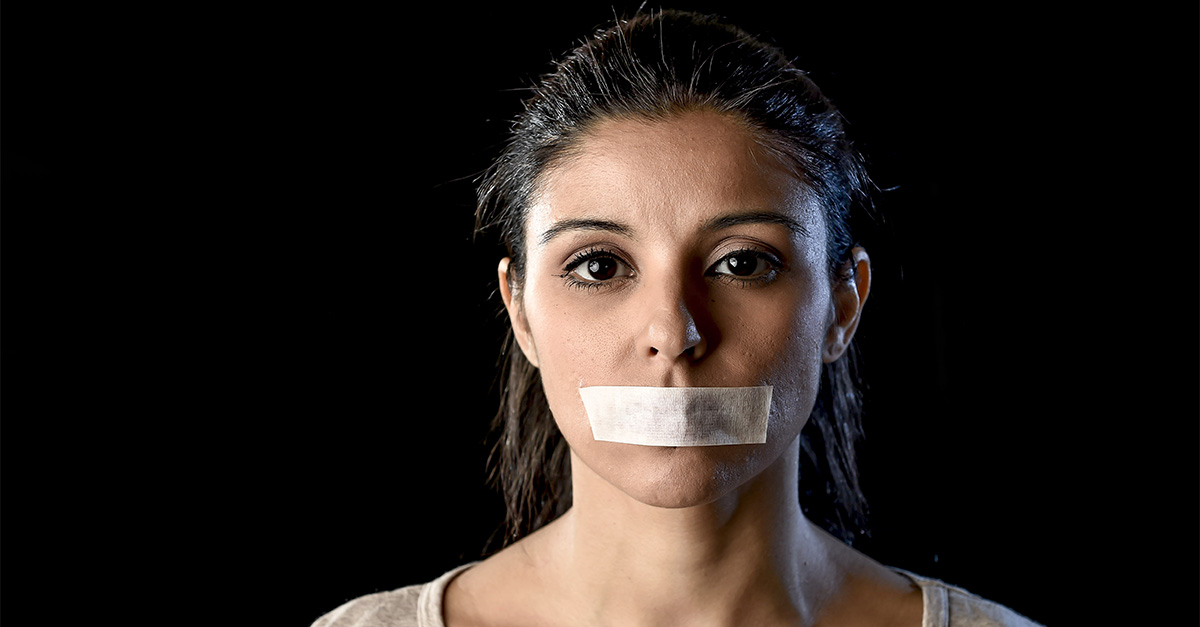It’s understandable that girls and young women are intimidated into silence by transgender activists and their enablers, but the only way they are ever going to undo this lie and reclaim their sports and spaces is by speaking the truth — and never apologizing for it.
Every day, there’s another story of men dominating women’s sports — and another demand by transgender activists and sports officials for female athletes to keep quiet and accept this new reality.
At the 2024 USA Weightlifting Masters Nationals, for example, 57-year-old Vicki Piper, a male who identifies as female, was awarded first place after defeating second-place finisher Krista Dornbush.
In Australia, a soccer team featuring five transgender players went undefeated in a women’s tournament, dismantling their competition. The Flying Bats Women’s Soccer Club didn’t lose once during the entire tournament in Sydney, winning one game by a score of 10-0, before capturing the Beryl Ackroyd Cup and the $1,000 prize when they took the final, which was also a shutout.
Many parents did not want their daughters to compete against the transgender players, and even some officials were upset about it.
Club officials said, “Some parents have pulled their daughters out of the games over safety concerns and say the players did not anticipate signing up to play against biological males in the female Sunday comp.”
One senior club official stated, “Some of the parents were so concerned they would not let their daughters play … It was so disheartening for them to see the huge difference in ability — they’re killing [female sports].”
One of the transgender players had even been accused of breaking a female player’s leg, leading the majority of the player’s teammates to quit; after a crisis meeting, however, tournament organizers reportedly warned other teams not to forfeit or complain about competing against males as that would be considered an act of discrimination and subject to punishment.
Unfortunately, the act of silencing women who speak out against unfair and unsafe competition or against being forced to share a locker room with men is a common occurrence.
Jonathan Kay of Quillette Magazine wrote an excellent article describing such intimidation in Massachusetts, where a male high school basketball player injured a girls’ basketball player.
What Kay exposed in his article was that the male athlete, who we will not name considering he is a minor, has competed in numerous girls’ sports and has dominated them. What’s worse, however, is that the male was previously kicked off the club rowing team after he stared at a girl changing in the locker room and made an inappropriate comment about her breasts, according to a letter sent by 15 parents of girls’ rowing athletes.
Despite this, USRowing allegedly intimidated athletes into silence and urged them to affirm its policy of allowing males to not just compete against females but also room with them alone in hotel rooms when traveling. The parents wrote in their letter to USRowing:
“Our daughters have stayed quiet because they are afraid. We tried to speak up for them, and we were shut down. We tried to speak to leadership at all levels. [But] name-calling and the threat of mental health is being used as emotional blackmail to keep us all quiet while women are harmed and devalued…Our daughters also faced a locker room situation where they were uncomfortable…They stopped changing in the locker room and began to hide away. These young girls should never have been put through being told they had to face a male body everyday as they undressed…It was a constant thought, a constant threat to submit and a constant awareness. Yet they dared not say anything (except privately to their parents). The rowing team also required the male athlete to room with them on trips. The girls spoke to us about quitting rowing because of the intimidation of being forced to be in a hotel room alone with a male.”
Paula Scanlan, a former teammate of William Thomas (also known as Lia Thomas), the University of Pennsylvania swimmer who switched from men’s to women’s swimming and won an NCAA championship, spoke at the University of Iowa about Thomas’s domination of their sport and the discomfort the women felt at sharing a locker room with him.
“At the NCAA championship, there was a girl … and she found a janitor’s closet with a dirty mop that she chose to change in to avoid undressing next to (Thomas),” Scanlan said. “She did that because she felt like she had to. … She said, ‘I don’t want any distractions. I don’t want to worry about it. I don’t want to feel unsafe. I’m going to do what I can to make myself comfortable.’ And that’s what most girls did the entire season.”
Scanlan also recalled how university officials allegedly silenced the women’s concerns regarding Thomas. “At first I just thought, This is an uncomfortable situation, but we can still talk about it. I can talk to my teammates about it. I can talk to my coach about it. There was some consensus that most people agreed that it wasn’t right. It wasn’t fair to varying degrees. But we also weren’t sure how fast Thomas was actually going to swim.”
She continued,
“I saw Thomas smash records — break all of our team records, was nationally ranked, faster than Olympians even. This university head came in and told us that Lia being on the team was non-negotiable. They also told us that if we ever spoke out about it, we would regret it, and we would spend the rest of our lives wishing that we hadn’t. We would never be able to find a job was something else that they told us.”
Scanlan said the university offered psychological services for those who were opposed to Thomas being on the team, the goal being to make them accept the situation.
“It’s one thing to tell us not to speak about it. It’s one thing to tell us there’s nothing we can do about it. But to tell us that we need therapy and we need mental help if we’re uncomfortable undressing next to (Thomas), that is completely insane,” she stated.
Unfortunately, most girls and women are reticent to talk about their discomfort with men invading their spaces, as seen in the results of the BBC’s fourth Elite British Sportswomen study. The questionnaire was sent to hundreds of female athletes in Britain, drawing responses from only 143 athletes.
One of the questions asked was: “How comfortable do you feel about transgender athletes competing in female categories in your sport?” Only 11 respondents said they were comfortable or very comfortable, while 45 said they were uncomfortable and 59 that they were very uncomfortable. Seven athletes didn’t answer.
When asked, “How comfortable would you feel speaking publicly on the topic of transgender athletes competing in female categories in your sport?” the answers were similar, with just 19 athletes saying they were comfortable or very comfortable, while 96 said they were uncomfortable or very uncomfortable.
A small number of women are starting to stand up and fight back. In March, 16 female athletes filed a lawsuit against the NCAA in part over its inclusion of Thomas in women’s swimming and its permitting him to change in the women’s locker room.

There’s a reason transgender activists and enablers want women to toe the line on this issue. As French President Charles de Gaulle once stated, “Silence is the ultimate weapon of power.”
More to the point, Proverbs 26:28 says, “A lying tongue hates its victims, and flattering words cause ruin.”
Transgender activists and transgender enablers are lying when they say that men can be women and male athletes have no innate physical advantage over female athlete, no matter how much they want it to be true. It’s a lie that defies common knowledge, common sense, and biblical and biological truth.
So those pushing this lie don’t just want female athletes to keep silent — they need female athletes to keep silent.
Which is why women must speak up.
Of course, the transgender movement and its allies are using intimidation, bullying tactics, and fear to force women to remain quiet. It’s not enough to steal victories and glory on the playing field. They also have no qualms about shaming and humiliating women by forcing them to change in broom closets to avoid being seen in a state of undress by men; by telling them that they need psychotherapy if complain about competing in an unfair competition or being forced to sleep in a hotel room with a man; or by demanding that they stay quiet — or else.
So, it’s understandable that female athletes are intimidated by and afraid of such tactics. Most of the athletes involved with this are just everyday girls and young women who like to play sports, who enjoy the benefits of competition, and who want to pursue their athletic dreams; many see sports as a way to get a scholarship to help pay for college. They didn’t sign up to be part of a culture war, wherein they get name-called on social media and in person by aggressive transgender activists and then silenced by sports authorities and coaches because they expect competition to be fair and for locker rooms and overnight accommodations to be private and safe.
Nonetheless, remaining quiet is not an option. The bullying and intimidation will not get better, only worse, if women and their supporters continue to censor themselves.
So what should female athletes do? Speak the truth and never apologize. Refuse to share a podium with a male athlete. Band together with parents, other athletes, and community members to speak out against men competing against women. Ask family and supporters to lobby legislators and sports authorities. If you lose a scholarship, are injured, or are threatened, file a lawsuit against all who have perpetrated or enabled such injustice.
Female athletes and their families should also reach out to those working in a high-profile way to combat this issue who can provide advice, resources, and moral support. These include female athletes like Riley Gaines, Paula Scanlan, and others, as well as law firms like Alliance Defending Freedom, First Liberty Institute, Dhillon Law Group, and others that fight against radical ideologies.
Proverbs 19:22 says that “it is better to be a poor man than a liar.” In this case, it is far better for a female athlete to be kicked off the team for speaking the truth than to stay and be a part of the lie that insists that allowing men in women’s sports and private spaces is fair, safe, and morally acceptable.
Female athletes, with the help and support of those who care about their well-being and about the integrity of sports competition, must find their voice and boldly speak the truth. Once they do, they’ll be amazed to realize that their real strength goes well beyond the playing field.
If you like this article and other content that helps you apply a biblical worldview to today’s politics and culture, consider making a small donation here.





